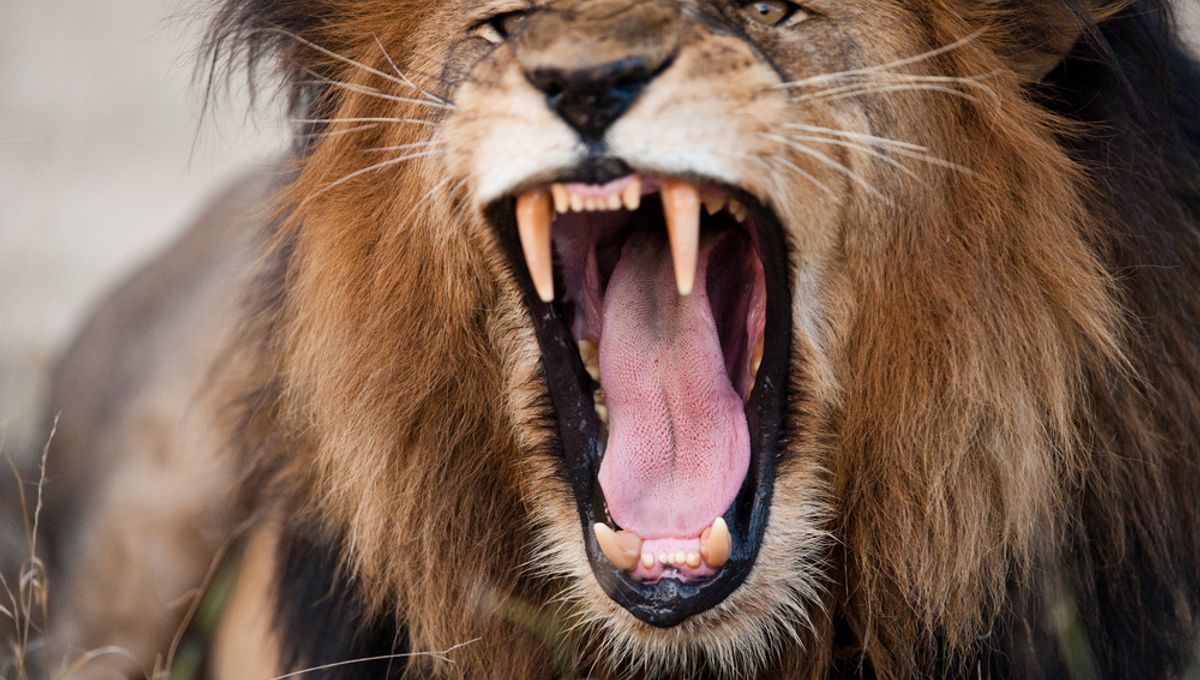
Recordings of human voices scare the wildlife of the Greater Kruger National Park more than lions’ growls or even the sound of gunshots. Even in a national park, we’re probably the bigger threat. After all, lions only kill what they can eat – some humans will slaughter an entire rhinoceros so they can turn its horn into medications that don’t work.
In The Book of Merlyn, the children’s author TH White noted that humans are more terrifying to animals than tigers, which he associated with our propensity for war. It’s taken more than 80 years, but we now have scientific confirmation of White’s observation, although the researchers compared us to the “king of beasts” instead.
“We usually think about the top of the food chain being large carnivore predators,” said study author Dr Liana Zanette, of Canada’s Western University, in a statement. “But what we’re interested in is the unique ecology of humans as predators in the system, because humans are super lethal.”
“Normally, if you’re a mammal, you’re not going to die of disease or hunger,” said fellow author Dr Michael Clinchy, which you might suppose is comforting. “The thing that actually ends your life is going to be a predator, and the bigger you are the bigger the predator that finishes you off. Lions are the biggest group-hunting land predator on the planet, and thus ought to be the scariest, and so we’re comparing the fear of humans versus lions to find out if humans are scarier than the scariest non-human predator.”
Zanette, Clinchy, and colleagues played recordings of lions, human voices, barking dogs, and gunshots to 19 species of mammals in the Greater Kruger National Park, home to one of the world’s largest surviving lion populations. Bird sounds were used as a control.
One might expect gunshots to create the greatest fear because they’re the main danger – it’s unlikely many humans are tackling elephants with their bare hands. When knives are used in the park, it’s usually in combination with dogs to drive the animals to the hunter.
The researchers used radio and TV recordings of the four most popular languages in the region, played at conversational volumes. For the lions they chose conversations within the pride, that we hear as snarling or growling, rather than territorial roars.
Responses were filmed as the animals came down to drink at waterholes. “We put the camera in a bear box, not because there are bears out in South Africa, but because of the hyenas and leopards that like to chew on them,” Zanette said. In a dramatic fieldwork fail even this proved inadequate however, “One night, the lion recording made this elephant so angry that it charged and just smashed the whole thing.”
Enraged elephants notwithstanding, the team collected ample observations to find animals were twice as likely to flee a waterhole on hearing humans as lions, and did so 40 percent faster. Elephants and wild dogs aside, all species were more likely to flee human voices than lions’, although for some species the difference was not significant. Moreover, when elephants did leave from fear of human voices, the response was faster than to lions. Guns and dogs proved less frightening than lions, although not significantly so.
Watch for the leopard that even drops its hard-fought-for prey.
“There’s this idea that the animals are going to habituate to humans if they’re not hunted. But we’ve shown that this isn’t the case,” Clinchy said. Conservation programs could take this into account – if animals fear chatty tourists more than lions, dogs, or gunshots, even photographers could threaten their ecology,
However, there could be a positive side to the findings. The team plans to explore placing sound boxes to deter endangered species from areas where they are particularly unsafe. Proving the animals’ point, this is primarily heavily poached zones.
“I think the pervasiveness of the fear throughout the savannah mammal community is a real testament to the environmental impact that humans have,” said Zanette. “Not just through habitat loss and climate change and species extinction, which is all important stuff. But just having us out there on that landscape is enough of a danger signal that they respond really strongly. They are scared to death of humans, way more than any other predator.”
Merlyn saw it coming, but couldn’t provide a solution.
The study is published in Current Biology.
Source Link: Africa’s Animals Fear The Sound Of Humans More Than Lions, Dogs Or Gunshots